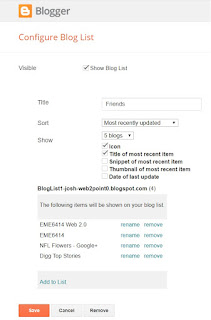The Inter(national)Net
In class this week, we addressed two broad categories - online communities, and the international nature of social media. This is my summary.
Wael Ghonim's story here share a little of both. In his story, he explains the power of social media - how it transcends state lines, and how it garnered a whole people to a common cause.
However, over the many posts on this blog, there has been the theme - the power of social media. In the later part of his story, he shares a more sinister plot. The same community that had fought as one to oust the former leader of Egypt, became so polarised that he was quoted as saying "you are either for me, or against me."
So, while this week's topic covered how interactive learning environments and communities help in many ways such as provide accessibility to information, and that harnessing the power of crowd sourcing would result in unparalleled opportunities, Ghonim cautioned that if not properly managed, things can turn sour really quickly. He shared five pitfalls of the internet today
1. We don't know how to deal with rumours. Rumours that confirm people's biases are now believed and spread among millions.
2. We create echo chambers, keeping a network of only like-minded individuals.
3. Online discussion can quickly descend into angry mobs. We forget that behind the screens/avatars are real people.
4. Because of the speed and brevity of social media, we often jump to conclusions, write sharp opinions, and attempt to summarise complex/convoluted/messy world affairs into a 140 characters.
5. Finally, we prefer broadcasting over engagement. We sensationalise news so as to get the most likes, shares and re-posts.
(Source: https://www.ted.com/talks/wael_ghonim_let_s_design_social_media_that_drives_real_change/transcript#t-722621)
Josh, out
Wael Ghonim's story here share a little of both. In his story, he explains the power of social media - how it transcends state lines, and how it garnered a whole people to a common cause.
However, over the many posts on this blog, there has been the theme - the power of social media. In the later part of his story, he shares a more sinister plot. The same community that had fought as one to oust the former leader of Egypt, became so polarised that he was quoted as saying "you are either for me, or against me."
So, while this week's topic covered how interactive learning environments and communities help in many ways such as provide accessibility to information, and that harnessing the power of crowd sourcing would result in unparalleled opportunities, Ghonim cautioned that if not properly managed, things can turn sour really quickly. He shared five pitfalls of the internet today
1. We don't know how to deal with rumours. Rumours that confirm people's biases are now believed and spread among millions.
2. We create echo chambers, keeping a network of only like-minded individuals.
3. Online discussion can quickly descend into angry mobs. We forget that behind the screens/avatars are real people.
4. Because of the speed and brevity of social media, we often jump to conclusions, write sharp opinions, and attempt to summarise complex/convoluted/messy world affairs into a 140 characters.
5. Finally, we prefer broadcasting over engagement. We sensationalise news so as to get the most likes, shares and re-posts.
(Source: https://www.ted.com/talks/wael_ghonim_let_s_design_social_media_that_drives_real_change/transcript#t-722621)
Josh, out

I prefer broadcasting, too because it can encourage students to interact with each other. :)
ReplyDelete